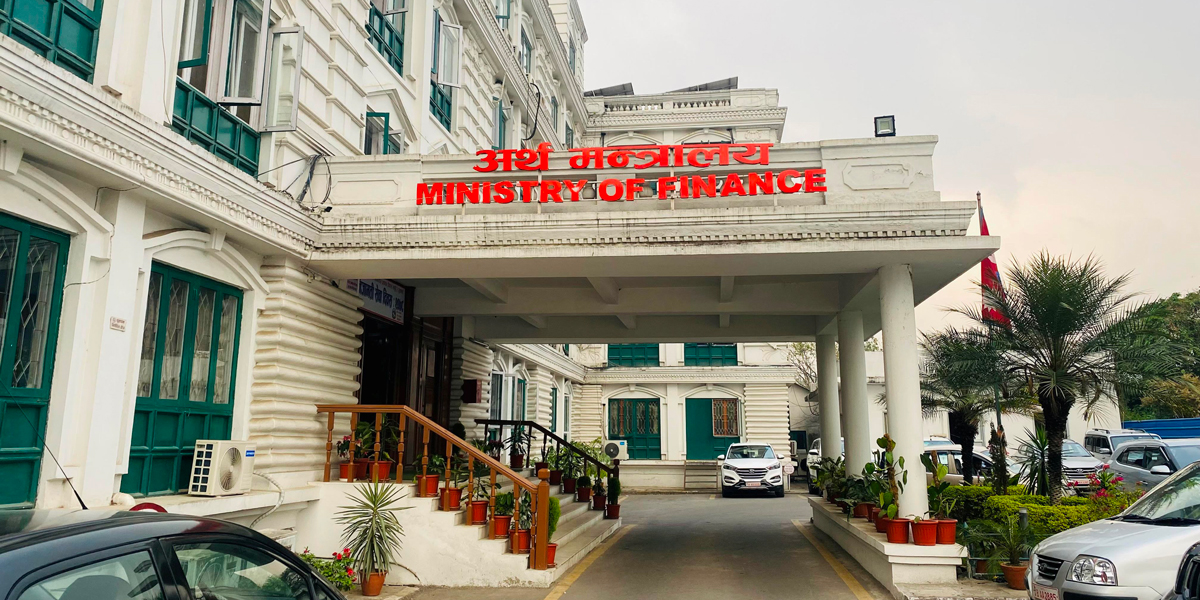Finance ministry’s restriction on antimicrobial resistance policy

Kathmandu. The world is being surrounded by epidemics one after the other. The world which was paralysed by the coronavirus for three years has again been under the risk of antimicrobial resistance.
Developed countries have begun to work on antimicrobial resistance. However, Nepal is still in a coma in terms of antimicrobial resistance. The Ministry of Health and Population which has been trying to come out from the coma since the last three years is once again stuck in the coma because of the restriction of the Ministry of Finance.
The World Health Organization had introduced the Global Action Plan on Antimicrobial Resistance with an aim that the countries across the globe could develop a special strategy on bacteria.
Antimicrobial Resistant National Action Plan should be made in every country. Many countries have formed the National Action Plan and have started working on systematic and effective activities, programs, and works to prevent the epidemic of antimicrobial resistance by joining hands with people from different sectors and stakeholders.
Nepal has also prepared the National Antimicrobial Resistance Containment Action Plan 2016. The National Action Plan is designed to guide action by public health, healthcare, and veterinary partners in a common effort to address urgent and serious drug-resistant threats that affect people in the country and to take urgent action at the national, regional, and local level to combat resistance.
The National Action Plan however has not been officially approved and implemented. The National Action Plan on Antimicrobial Resistance (NAP-AMR) was drafted in 2021. It is in the Cabinet for approval. It should have been approved by the government in 2022 but it has not happened yet.
Medical expert on antibiotic resistance Dr Santosh Dulal said, “Antimicrobial threats have increased significantly in the world. Nepal should immediately approve and implement the national action plan to prevent antimicrobial resistance and raise awareness about antimicrobial resistance with the assistance from all the sectors and stakeholders.”
Various studies have shown that in the year 2030, 10 million people will die due to antimicrobial resistance. According to Dr Dulal, it is estimated that 24 million people will reach the poverty line.
To control the growing threat of antimicrobials, the government should implement evidence-based knowledge acquisition/production, survey and surveillance, infection prevention and control, appropriate use of antibiotics in humans, animals and the environment and sustainable investment, innovation and research, effective activities and programs related to antimicrobial resistance as soon as possible.
If the government implements NAP-AMR, agencies working on antimicrobial resistance will efficiently implement antimicrobial resistance related activities and programmes. As NAP-AMR will provide guidance to control the global challenges of AMR, Nepal will attract international and donor agencies.
Dr Madan Upadhyay, head of the Quality Measurement and Monitoring Division says that the work is on progress. “The Ministry of Finance wants to be clear either the Ministry of Health and Population will only participate in this campaign or other ministries too will.”
“The file of National Action Plan on Antimicrobial resistance was sent to the Ministry of Finance but the ministry has returned the file seeking some clarifications on some points. After clarifying the points we will again send the file to the ministry,” said Dr Udadhyay.
It has been long that antibiotics have been made. Antibiotics takes years for clinical trials. New antibiotics have not been produced since the last 35 years. The last time daptomycin was produced in 1987.
Lumbini Province Health Secretary Dr Bikash Devkota said, “The priority of the state should be antimicrobial resistance. Everyone should work on antimicrobial resistance.”
“The Ministry of Health and Population is not the only one who should be involved in this. A high level committee on antimicrobial resistance along with the participation of Ministry of Agriculture and Livestock Development, Ministry of Forestry and Environment and other related agencies should be formed to start the project.”
क्याटेगोरी : English
















तपाईको प्रतिक्रिया दिनुहोस